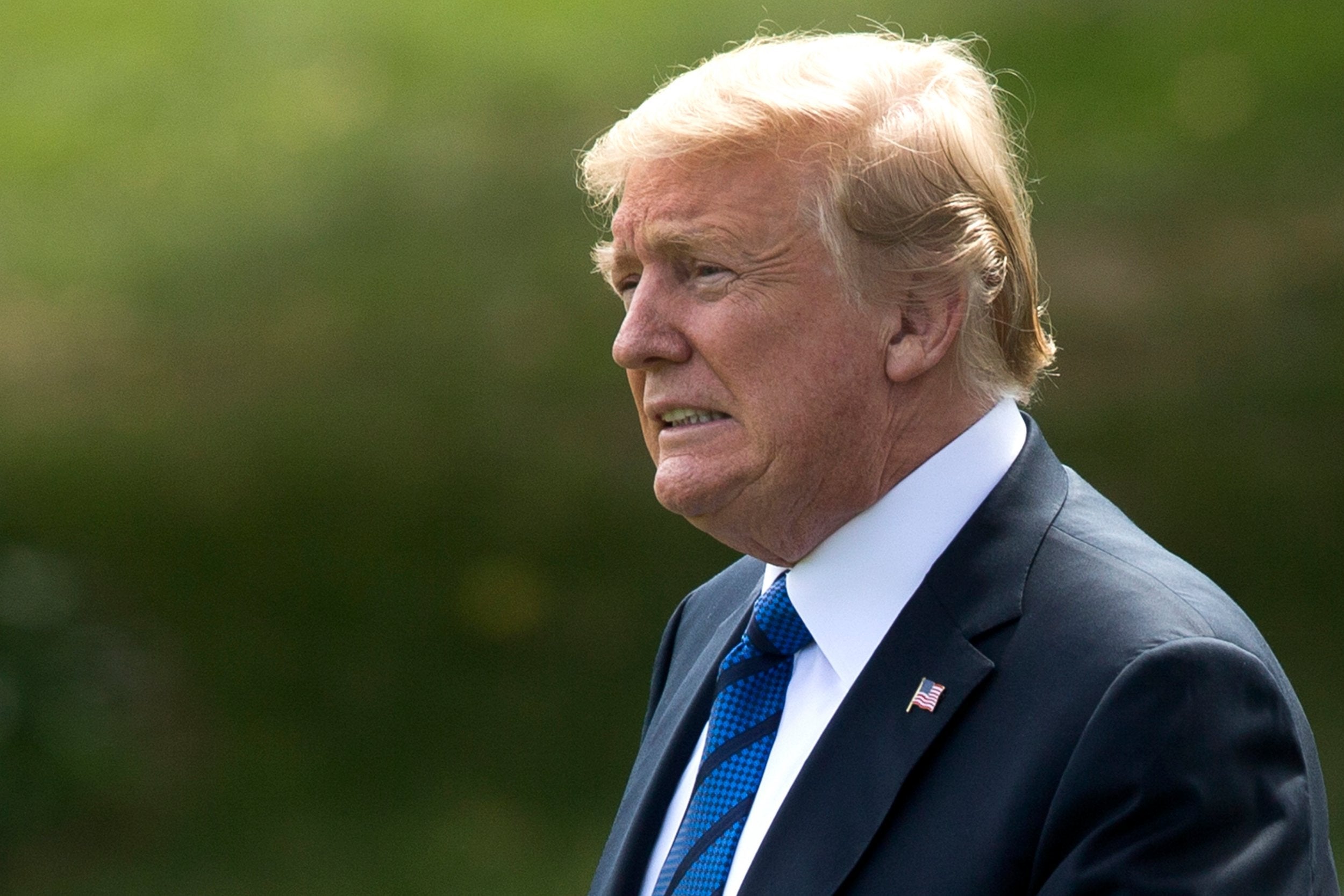Five things to look out for in the economy as Juncker visits Trump to talk tariffs
It is conceivable but unlikely that by the weekend, the trade war with Europe will have been called off. More likely a low-level discomfort rumbles on


The focus has switched from trade war to currency war, or at least thanks to Donald Trump that has been the new twist to events over the past few days. He has attacked the Federal Reserve for putting up interest rates and the EU and China for depreciating the euro and the yuan.
Quite what happens next is anyone’s guess, and currency movements are the hardest things to predict. But there are some things coming up in the next few days that will give us some feeling as to whether there will be currency calm or currency chaos through the autumn. Here are five ideas.
First, whether the dollar gets stronger or weaker depends on the US economy. The Fed will press on pushing rates up (and the debate is whether there will be two, three or four more rises this year) as long as the economy grows strongly.
On Friday, we get US GDP figures for the second quarter, and the expectation is that they will be very strong: the economy growing at an annual rate of more than 4 per cent. Anything much above 4 per cent will be positive for the dollar; anything below will be negative.
But for those of us who don’t follow every intricacy of US economics, the thing to look for will be commentary about the second half. Is the strong second quarter mostly a bounce from a weak first one, or will tax cuts keep the economy on song for the second half?
On Thursday there is the pre-holiday meeting of the European Central Bank. There will be no policy announcements, or at least nothing of significance is expected, but ECB watchers will tell us whether there is anything new in the comments of Mario Draghi, ECB president at the press conference.
The really interesting challenge to eurozone stability comes from Italy, so maybe he will feel obliged to say something about that. He won’t give a view on the euro, though, so don’t expect anything direct – but the ECB is so closely studied that by Friday we will see in the markets any significance of the meeting.
What will affect the euro directly, because it affects Germany, will be US tariffs on European car imports. The EC President Jean-Claude Juncker visits Washington this week to meet Mr Trump to talk about tariffs. I really cannot figure out what to expect out of this oddball meeting.
Any cranking up of trade hostilities is bad for the euro, partly because Europe is more damaged by this than the US, and partly because fears of a trade war lead to a flight to safety, and in this case dollar-denominated assets are perceived as more safe than euro ones. But then the US president does not want to strengthen the dollar, so what is his game?
It is conceivable but unlikely that by the weekend, the trade war with Europe will have been called off. More likely a low-level discomfort rumbles on.
Discomfort between the UK and Europe will certainly rumble on, and some, into the autumn and beyond. There is a very simple rule of thumb here: a soft Brexit is good for sterling and a hard one is bad. At the moment the pound is undervalued on a long-term view, so the scope for it to rise is greater than the scope for it to fall. But uncertainty is bad for the pound, and the mood will not shift significantly until that uncertainty evaporates.
My own expectation is that eventually a deal will be done, but it will be a bad one for both sides and will have to be redone in five years’ time. If that is right expect the pound to remain weak for a while yet – but let’s see what comes out in the next few days.
Finally, another aspect of the potential currency war: China. Donald Trump attacked China for devaluing the yuan, and you can see why. The currency is at its lowest level for a year. But this reflects other weaknesses in China itself. The US treasury secretary Steven Mnuchin said on Friday that the US was watching closely to see if the yuan was being manipulated, but I’m not sure how you judge that.
China does manage its currency – for many years it was pegged to the dollar, with the peg occasionally being shifted – but there is a line between management and manipulation. Steven Mnuchin is one of the grownups in the administration and should be taken seriously; let’s see what he says.
The big point here is that we are probably not heading into grave currency conflict, but there will be skirmishes and anger. World trade will stumble on, for it has put up with far greater uncertainties than this. But for those of us who believe calm is better than chaos, it will be an edgy time.
Join our commenting forum
Join thought-provoking conversations, follow other Independent readers and see their replies
Comments
Bookmark popover
Removed from bookmarks